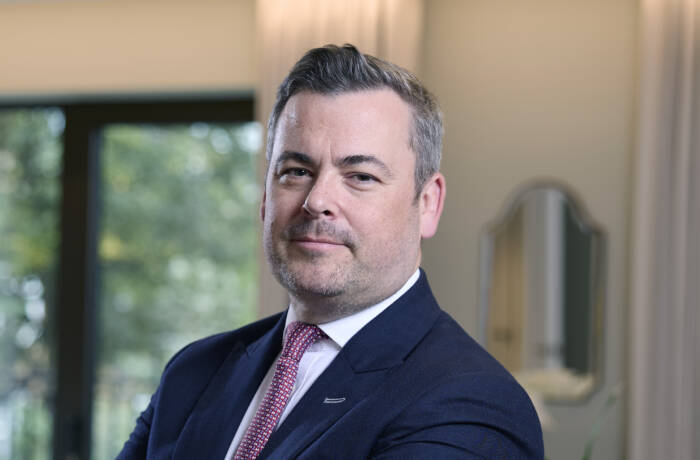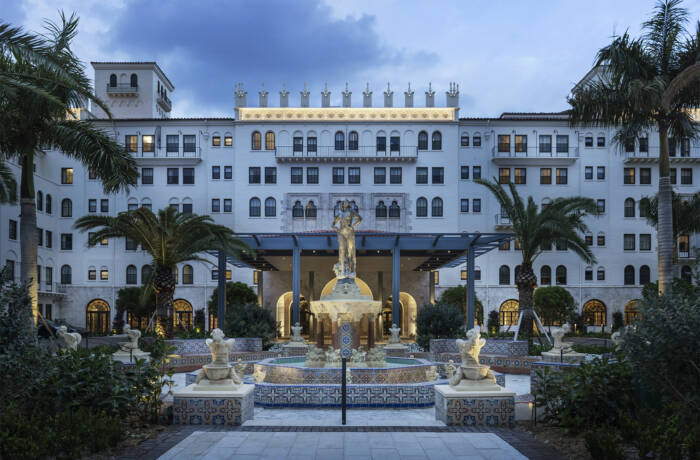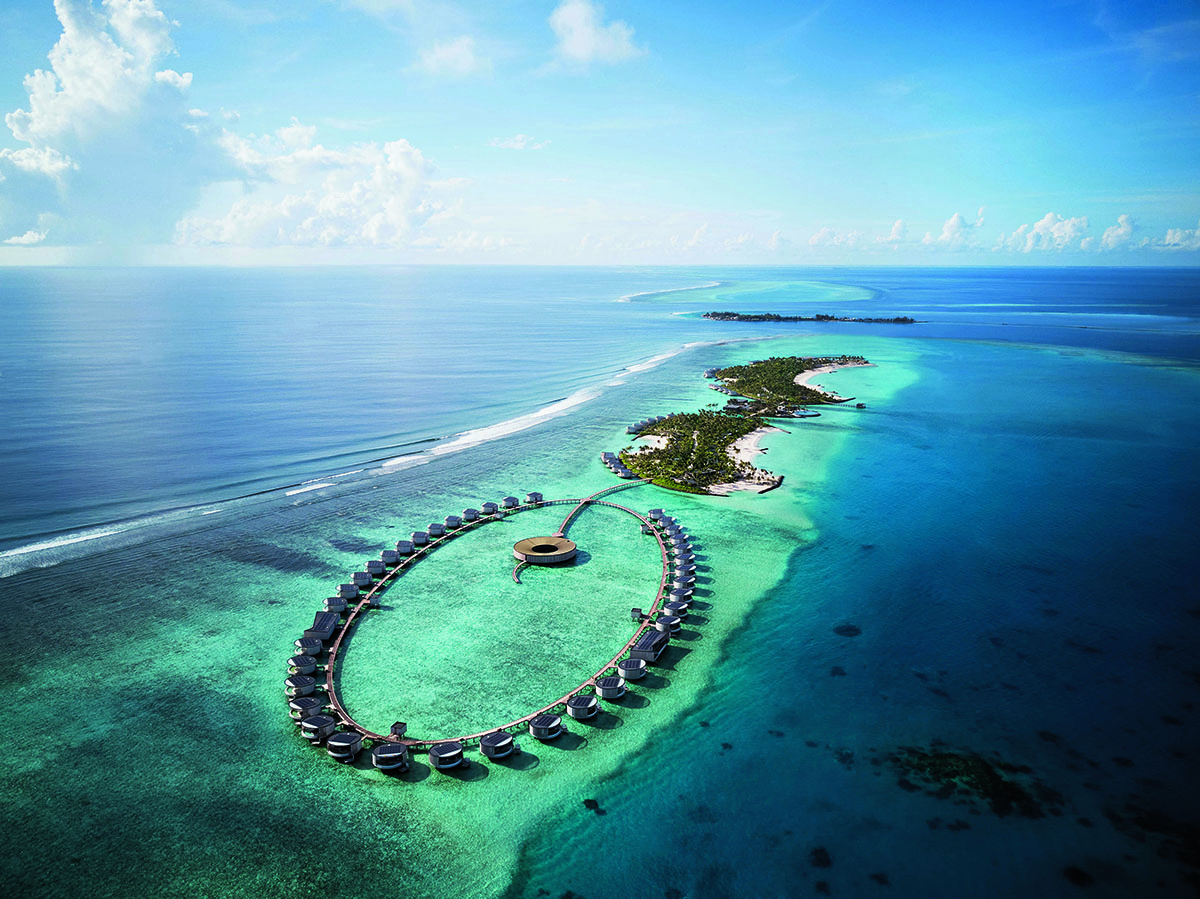
The Ritz-Carlton, Fari Islands, in the Maldives
A new resort complex in the Maldives seeks to combine ocean exploration and conservation, extreme luxury, sustainability, and a cultural vibe the islands have never seen before. Candice Tucker checks in
Fari Islands in the Maldives has been created by its developers, the Singaporean Kwee family, as a completely new type of destination for the region. As well as the usual beach and island isolation, the islands, which include three hotels, have a small cultural and resort centre called Patina Island, aimed at providing alternative distractions and activities.
I am staying at The Ritz-Carlton, on one of the islands, which is proud of its programme combining social and environmental innovation. There is almost no plastic used on the island and, increasingly, energy is generated from solar power. The ocean villas, designed by the late Kerry Hill, were built with sustainably managed timber, from sustainable European forests. The most impressive initiative is Jean-Michel Cousteau’s Ambassadors of the Environment programme. Guests can watch marine biologists at work, led by Cousteau, scion of the celebrated ocean exploration and conservation family. As part of the programme you can help search for plastics and ghost nets in the ocean, and work on ecological restoration around the island. Combining luxury with purpose, it is a harbinger of holidays to come.
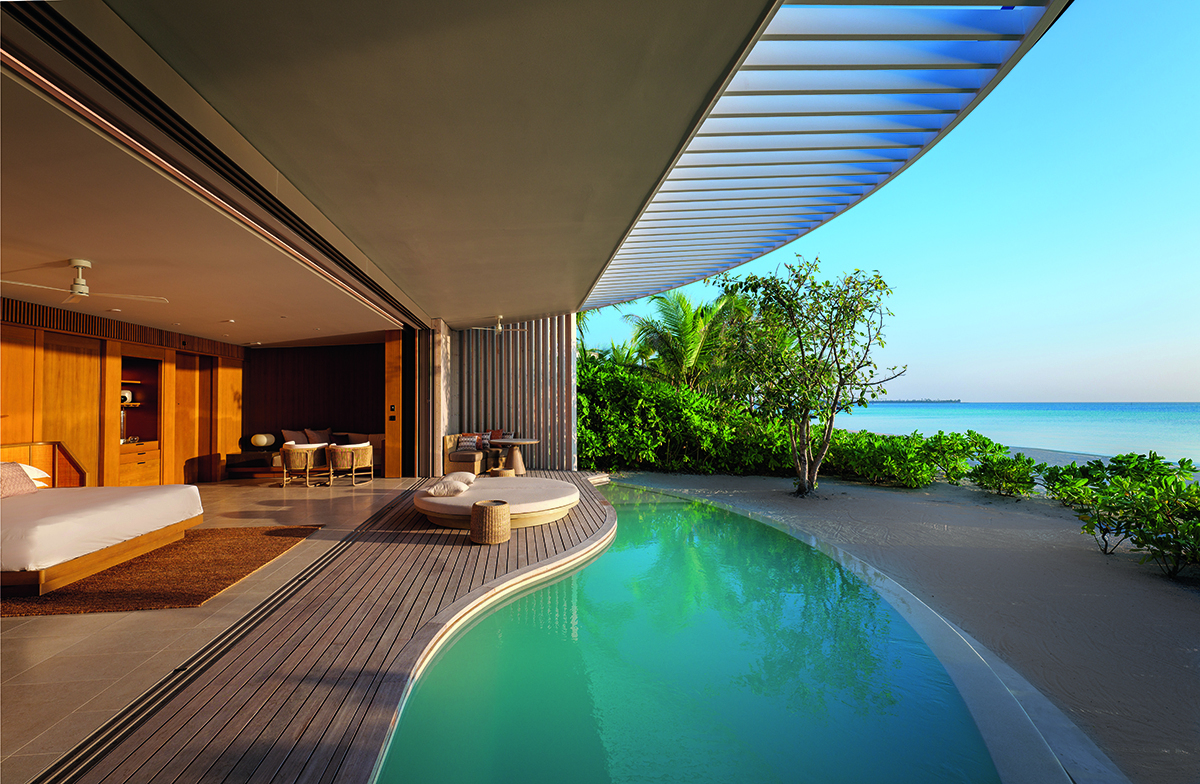
One of the hotel’s beach-pool villas
It helps if you understand the undersea world, and for that I set off, on my first day, on the Ritz-Carlton snorkelling experience. After a short boat ride, we stopped far out to sea. Surrounded by nothing but blue water, the hotel diver said, “This is where we jump in”.
Follow LUX on Instagram: luxthemagazine
Imagine being transported to another universe. Rainbow fish, turtles, guitar sharks (their name comes from their shape) and colourful corals of pinks, purples and oranges. I had arrived on the film set of Finding Nemo. Watching the hotel divers remove abandoned nets, without harming sea life, brought home the delicate balance between observing and protecting this precious world.
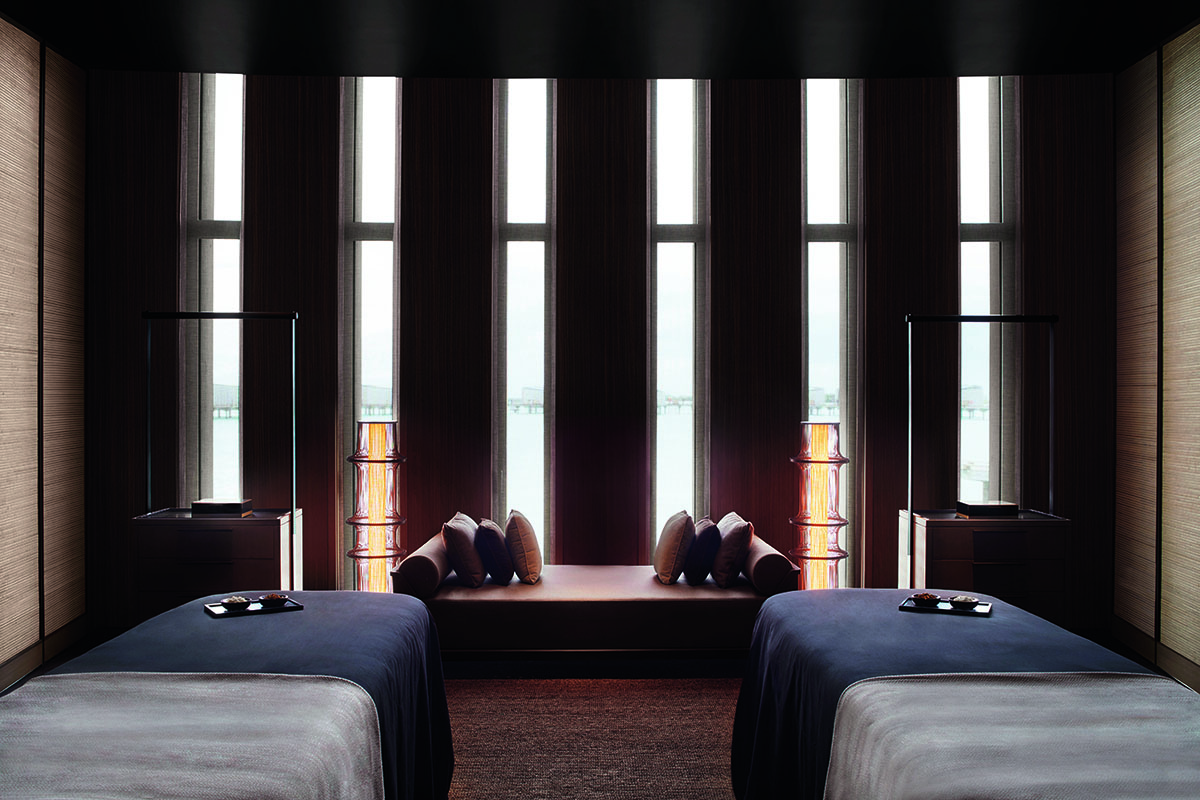
A treatment room inside the Polo mint-shaped spa
Personalised luxury is the new buzzword in the travel industry, and I found it here – or, it found me. One day I commented innocently on the quality of the chocolate cookies at dinner. The next day, on returning to my room, I found that a bath had been prepared, with coconut bath oils – and a plate of the chocolate cookies on the side. And waking up each morning, pressing a button next to my bed and seeing the uninterrupted view of the turquoise Indian Ocean, became a daily ritual I couldn’t tire of. The décor in the room was a mix of light browns and whites, reflecting the colours of the island, leading to a private infinity pool and round sun lounger, offering complete privacy to enjoy the view.
At the centre of the 39 ocean villas is a Polo mint-shaped building, which is the spa. The only noises you can hear are the wind and sometimes the splash of a flying fish. Now, imagine walking round the inside of that Polo with a view of the sea on the inside and scores of treatment rooms on the other, each with the same tranquil vista.
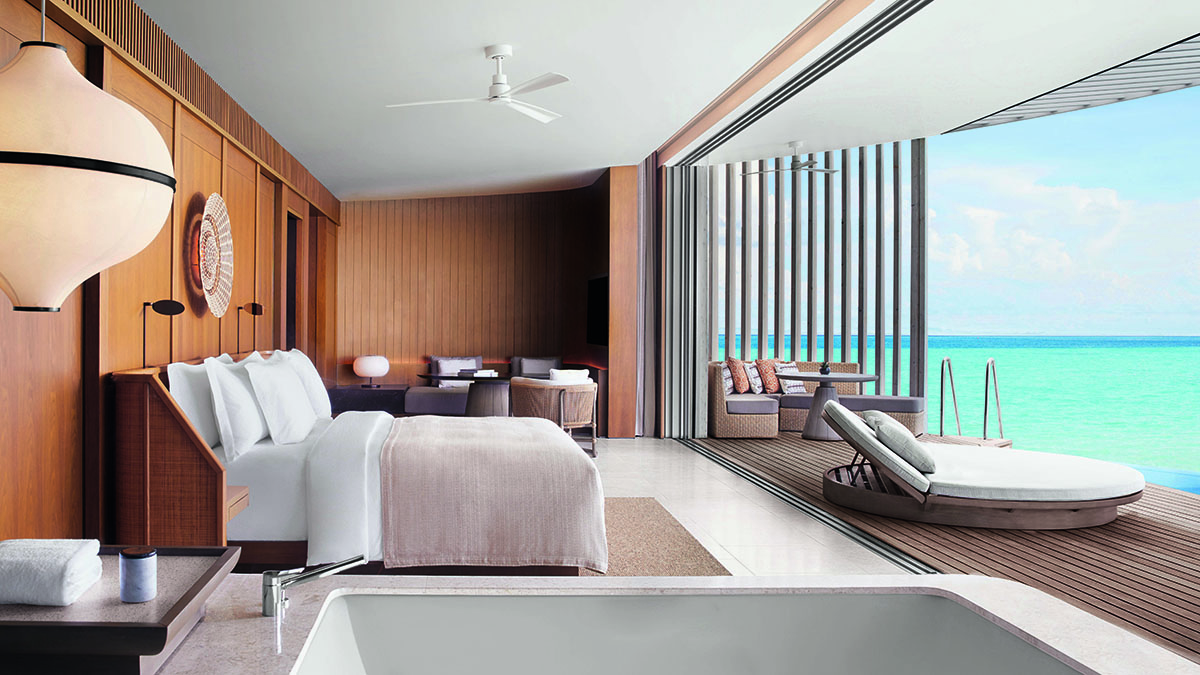
Ocean-pool villa
The beach, carpeted in powdery white sand, and the occasional hermit crab, meets the turquoise sea, which becomes increasingly transparent the closer you peer. When I was feeling more sociable I visited the buzzing Patina beach, the social centre of the islands, with its pool bars, art galleries and upscale food trucks. However, as an urban dweller, I was more tempted to spend time back at the Ritz-Carlton relaxing, where palm trees hang over sparsely spaced sun loungers, spread across the white sand, making you feel not isolated, but rather exclusively pampered. The only interruption was the occasional offering of fruit sorbets and beverages. For me, it was the perfect spot to read, and dip into the sea when I felt like it.
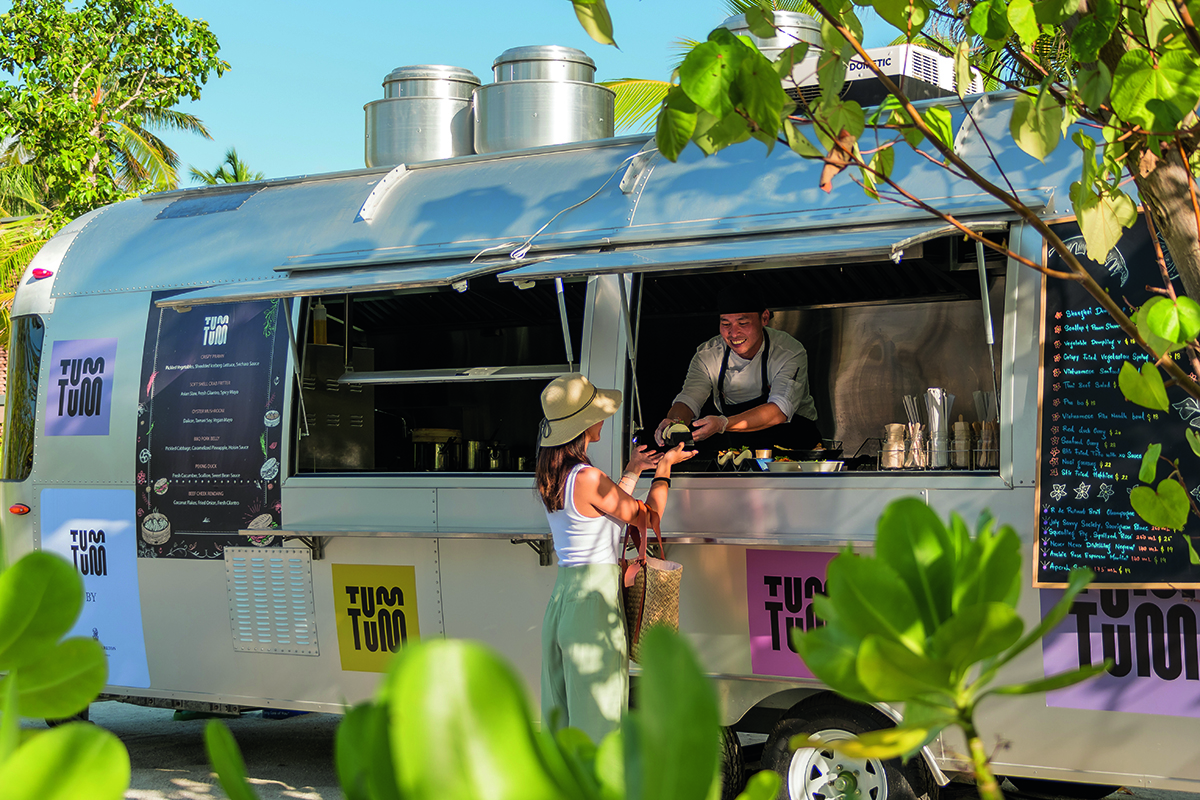
The Tum Tum food trailer, serving up Asian street food, at the Fari Marina
The social centre of Patina does allow for a wider variety of cuisines and styles of dining than you might get in most resorts. Arabesque, an Indian-Arabic fusion restaurant, a link to the history of the Maldives, demonstrated the cultural crossroads. I recommend the Goan fish curry, cooked with coconut, tamarind and local reef fish.
In fact, the Fari Islands offer seven restaurants. One evening I dined at Iwau, the Ritz-Carlton’s Japanese restaurant, at the chef’s table under the stars. The tasting menu was presented as abstract art, an explosion of colour on each plate. The slow-cooked buttered salmon teriyaki, with asparagus and avocado cream was the highlight.
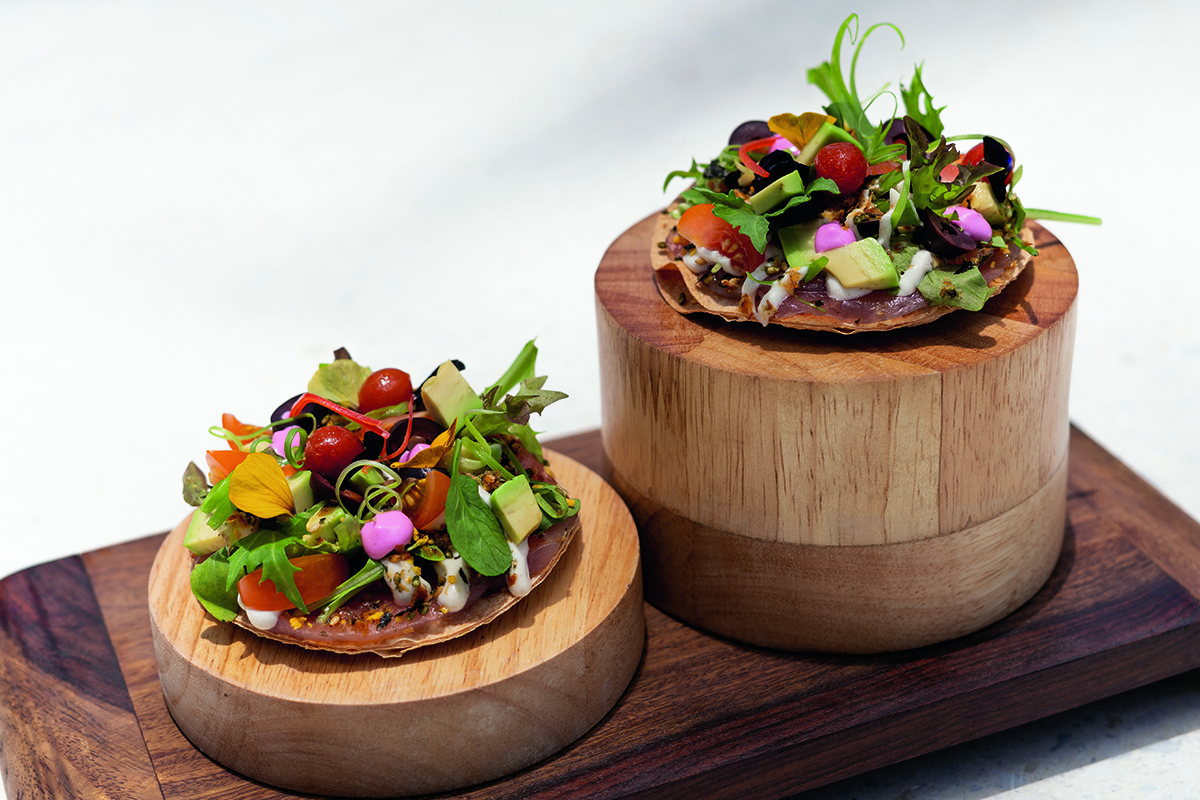
Vegetarian pizza at the hotel’s beachfront Eau Bar
The Italian at the Ritz-Carlton, La Locanda, is a hub for all-day dining. Guests can order off-menu. On a whim, I asked for pasta with seabass and tomatoes, which the chef quickly prepared to perfection. Warm focaccia infused with garlic was a satisfying starter.
The resort’s operators are fond of saying that the combination of art galleries, beaches, restaurants and cultures mean Fari Islands has a hint of St Tropez to it. That may be true, but in terms of marine life, conservation and space, it offers rather a lot more.
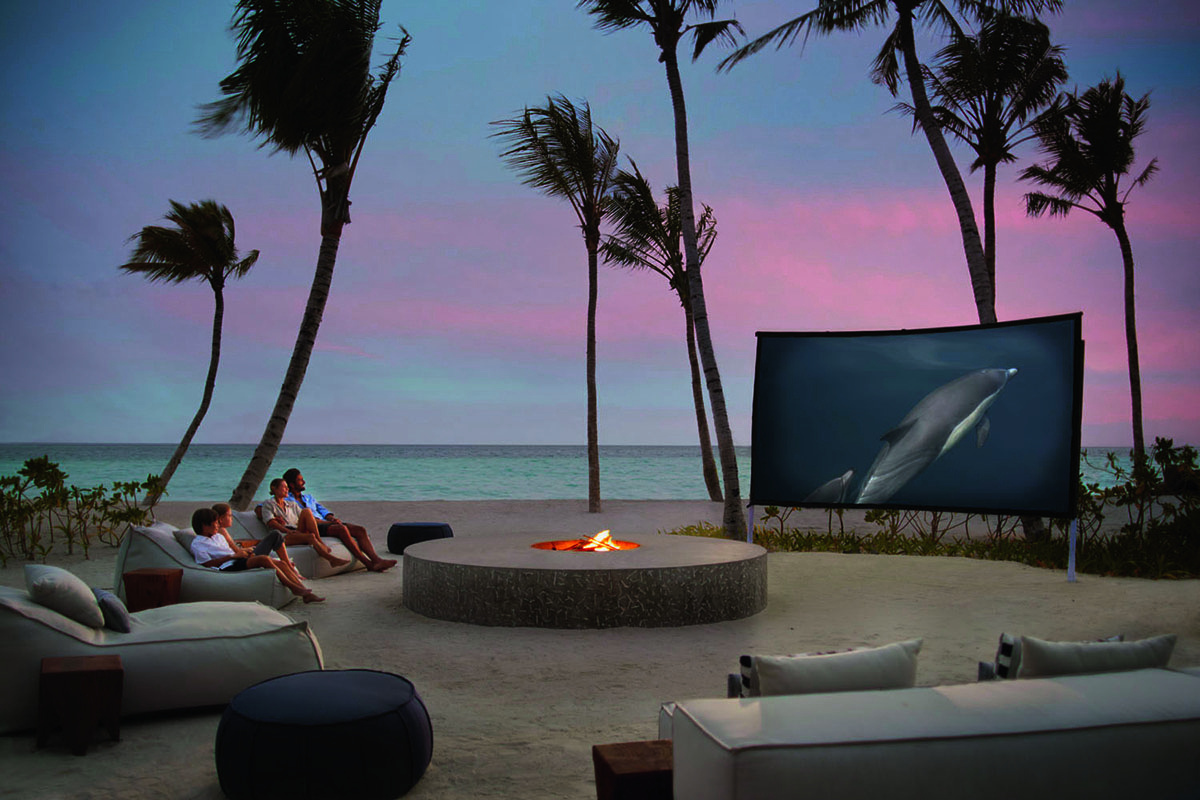
Ritz-Carlton cinema
The Cousteau Connection
At the heart of the Ritz-Carlton is JeanMichel Cousteau’s Ambassadors of the Environment programme. This is personally run by the 84-year-old celebrated veteran of ocean exploration and film making. The programme introduces guests to ocean conservation through education and interaction. Activities range from using ocean drones to spot sea life and searching for ghost nets to collect, to learning to pilot a submarine. Scuba diving (for anyone from the age of 10) and snorkelling allow guests to witness the rich marine life along the reefs.
Read more: Responsible Luxury Travel: Keythorpe Hall, England
Cousteau also says the involvement of Ritz-Carlton is crucial, particularly in the Maldives. “When I was diving in the Maldives, I was surprised to see the number of dead corals. We need to do everything we can for the corals, because they are a very important part of the protection of the coastlines. Corals help to feed hundreds, maybe thousands of species, and we need to conserve everything around the Maldives. Ocean Futures’ approach, which I created to honour my father’s philosophy after he passed away, is if you protect the ocean you protect yourself, and if we protect what’s around the Maldives we will protect the people there, and we want to help as much as we can.”
Find out more: ritzcarlton.com
This article appears in the Summer 2022 issue of LUX

